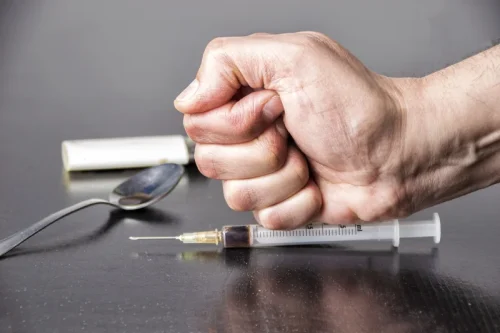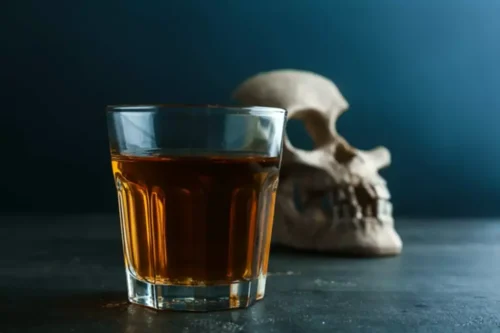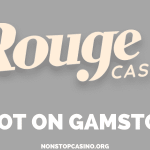
This means that cutting out alcohol can help — but often further action is required in order to take full control of your condition. It is common practice for someone to have a drink or two after a hard day to alleviate stress. However, when that person has an anxiety disorder, it is easy for that drink to turn into three or five as they try silence their mind. This self-medication of the issue makes them more likely to develop a dependence and eventually an addiction. As is the case with many dual-diagnosis conditions, addiction to alcohol and anxiety commonly exist together within the same person.
Effects of co-occurrence on alcohol treatment outcomes
In some cases, people with certain mental health conditions, such as anxiety or panic disorder, might develop an unhealthy relationship with alcohol. Anxiety after drinking can result from alcohol’s impact on brain chemistry, dehydration, withdrawal symptoms, disrupted sleep, and pre-existing anxiety disorders. If this is a recurring issue, consider moderating alcohol intake and seeking professional support.
Stress Management Techniques
If you struggle with panic attacks and feelings of anxiety, it is important to understand how alcohol can affect your mental health and potentially make these symptoms worse. Treatment can help reduce the intensity and frequency of your panic attacks and improve your function in daily life. One or both types of treatment may be recommended, depending on your preference, your history, the severity of your panic disorder and whether you have access to therapists who have special training in treating panic disorders. However, the long-term effects of alcohol can cause anxiety or make the symptoms of an anxiety disorder worse. Additionally, chronic alcohol use can lead to tolerance or dependence, as well as cause physical damage to the body (including the brain, liver, and heart).

Panic Attacks & Panic Disorder
- As well as being an unhealthy coping mechanism, cases of alcohol-induced panic attacks prove that alcohol can actually be the cause of anxiety and panic rather than the cure.
- The efficacy of these drugs for anxiety treatment has been established firmly in well-controlled, randomized clinical trials.
- With fewer GABA receptors available, your body can naturally absorb less GABA, which inhibits your ability to naturally calm down and can lead to panic attacks.
- It’s important to seek medical treatment, like medication and psychotherapy, if you’re having frequent panic attacks.
- In fact, 50% of people receiving treatment for alcohol use disorder also live with an anxiety disorder.
- People need to speak with a doctor if they are experiencing the above effects due to alcohol.
Some people struggle with a disorder known as alcohol-induced panic attacks, in which they suffer from regular panic attacks after drinking alcohol. Many people believe that alcohol is an effective self-medication technique for coping with anxiety and panic attacks, due to the initial sedative effect and feelings of calm that this substance provides. There are many effective treatments for anxiety and alcohol use disorders, including ongoing individual therapy, group therapy, prescribed medications, or a combination of these methods. Also, the concept of causation among co-occurring conditions may be based on an incorrect assumption. Rather than two distinct conditions, each requiring a cause, negative affect and alcohol misuse may be parts of a single, neurobiological-behavioral syndrome.
Generalized Anxiety Disorder and Panic Disorder
- First, historical trends and research related to the psychiatric classifications of alcohol misuse, negative affect, and their co-occurrence are reviewed, including typologies and diagnoses.
- Data from a study of 53 patients who participated in alcohol treatment at a residential substance abuse program were consistent with this prediction (Kushner et al. 2005).
- For this reason, those that have panic attacks should strongly consider avoiding alcohol wherever possible.
- Conditioning theories of panic disorder propose that panic attacks are classically conditioned responses to subtle bodily sensations resembling those normally occurring when one is anxious or frightened (Bouton, Mineka, & Barlow, 2001).
- Once the physical sensations of panic no longer feel threatening, the attacks begin to resolve.
Alcohol affects the levels of serotonin and other chemicals in your brain, so it affects your body and mind in various ways the next day. Alcohol-induced anxiety is the uncomfortable feeling that can happen after drinking heavy amounts of alcohol. For those who have an alcohol use disorder, it’s a symptom of alcohol withdrawal syndrome.

Addiction To Alcohol And Anxiety As Co-Occurring Disorders
The more you drink the greater your tolerance for alcohol — meaning you need to drink more alcohol to get the same feeling. If you rely on alcohol to mask anxiety, you may find you become reliant on it to relax – putting you at risk of alcohol dependence. In fact, if you’re experiencing anxiety, drinking alcohol could be making things worse. If you think you have a problem with alcohol, seek help from your doctor right away. Long-term heavy drinkers may be predisposed to developing an anxiety disorder.

How many people drink alcohol as a coping mechanism?
When we reach for alcohol in an effort to calm the symptoms of anxiety and panic, we can become trapped in a vicious cycle that may eventually lead to a physical or psychological addiction. Your primary care provider will determine if you have panic attacks, panic disorder or another condition, such as heart or thyroid problems, with symptoms that resemble panic attacks. While alcohol might feel like a solution in the short term, this drinking behavior comes https://ecosoberhouse.com/ with many problems. When people use alcohol to relieve symptoms of a mental health condition, it can quickly become a «crutch.» However, restricting attention to a single diagnosis and its relationship to alcohol misuse does not align with more recent research. First, historical trends and research related to the psychiatric classifications of alcohol misuse, negative affect, and their co-occurrence are reviewed, including typologies and diagnoses.

- People with anxiety disorders may use alcohol as a coping mechanism, which could lead to alcohol use disorder (AUD).
- In this stage, compulsive substance use is aimed, in part, at decreasing the negative affect caused or aggravated by the allostatic reset in the brain’s stress and mood systems.
- Moreover, serotonergic agents have favorable properties, such as being well-tolerated and having virtually no abuse potential.
- Talkiatry is a national psychiatry practice that provides in-network, virtual care.
- There are several reasons for this, which will be discussed below; but the key thing to remember is that those with panic attacks suffer from an issue known as hypersensitivity.
- Treatment providers can connect you with programs that provide the tools to help you get and stay sober.
- Anxiety often causes physical symptoms, such as a racing heart or knots in your stomach.
People with generalized anxiety or panic disorder are more likely to develop unhealthy drinking behaviors around the same time that they start having symptoms of their anxiety-related mental health condition. The psychiatric, psychological, and neuroscientific disciplines have developed theories to explain the association between alcohol and anxiety disorders. alcohol and panic attacks Each discipline has independently contributed to the understanding of how to best describe and treat alcohol use disorder (AUD) in the context of negative affectivity. However, very little cross-communication has occurred among these disciplines. This insularity and particularism continue to impose significant opportunity costs in this field.
Coping Mechanisms for Anxiety
The self-medication explanation for the comorbidity of anxiety and AUDs has received the most attention in the clinical and research literature. This model proposes that people with anxiety disorders attempt to alleviate negative consequences of these conditions (i.e., are negatively reinforced) by drinking alcohol to cope with their symptoms, eventually leading to the later onset of AUDs. This concept, in fact, is shared by several models of alcoholism, including the self-medication (Khantzian 1985; Quitkin et al. 1972), tension reduction (Conger et al. 1999), and stress-response dampening models (Sher 1987; Sher and Levenson 1982).

 НОВОСТИ
НОВОСТИ Half-Life
Half-Life Half-Life 2
Half-Life 2







